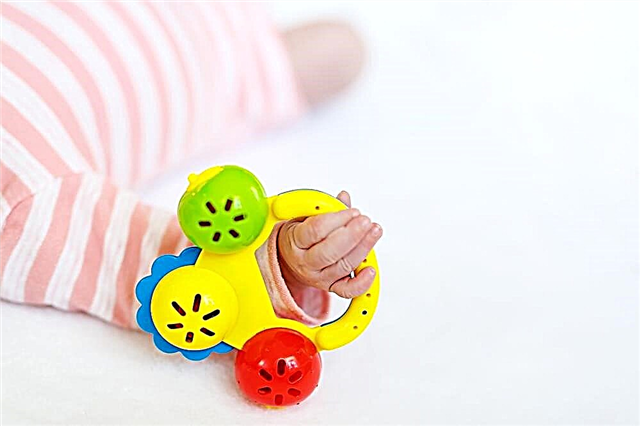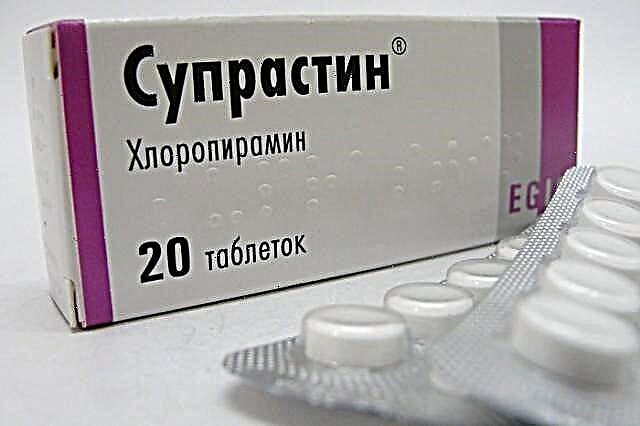Inexperienced dads and mothers are often worried about the questions: why can a baby roll his eyes, is this a violation, and what actions should be taken if this symptom is recognized as a symptom of the disease? It is also important which specialist to go to if an infant up to a year old rolls up his eyes after being overcome by sleep, or directly in the process of falling asleep.

Baby with rolled eyes
External manifestations of eye rolling
This is one of the most common reasons for the parents of a boy or girl to consult a specialist. The disease manifests itself in the fact that the baby opens his eyes in a state of sleep and rolls up his pupils. For babies up to a month, the eyelids often open when they start to sleep. Parents are afraid that the pupil is not visible, and only the whites of the eyes are protruding.
The manifestations are somewhat different in different children. In some, the eyelids are only slightly raised, while in others, they open to the full. This can also happen in older children before falling asleep. Sometimes the eyes can roll during the active period of the day.

Baby rolls his eyes in a dream
Important! It is necessary to pay special attention to this symptom, since the cause may be a disease. You should look at the accompanying manifestations: convulsions, nausea, and so on.
Causes of the phenomenon
If the newborn baby is calm, does not try to twitch, has no problems with sleep, sucks the breast with appetite, you should not worry. In this case, we are talking about a normal physiological phenomenon. The fact is that the baby's nervous system is still immature, so the baby does not know how to control its muscles and focus on objects. Therefore, rolling the eyes of a newborn is considered the norm.

Baby with rolled eyes
If this happened after a month, attention should be paid to this fact, since at this age children already know how to control the muscles of the eye.
Important! If this happens after a year, it may be because the child is playing.
While falling asleep
It is perfectly natural for a newborn to roll his eyes when he falls asleep. Even adults sleep with raised pupils. This is how the brain tunes in to sleep.
When sleeping
In children under one month old, the muscles of the eyelids are not fully developed, so they can spontaneously open. Experienced parents are already aware that babies can sleep with their eyes open. It shouldn't be scary.

Sleeping newborn
Should be worried about the situation when at 3 months the baby continues to roll his eyes. Here you need to consult a neurologist.
Other possible options
In 9 out of 10 cases, rolling your eyes is not a cause for alarm. The baby may try to focus his gaze on an object that is not located within his sight. Newborn children do not yet know how to hold their heads, so they can turn their eyes to look around.
AT 1 percente cases, the sign indicates a malfunction in the functioning of the body:
- Paroxysmal tonic look. This is a genetically determined disease that can manifest itself after infection with pathogenic microorganisms. The condition is not dangerous, but it can provoke a delay in psychological development.
- Otitis.
- Diseases of the eyes.
- Inflammation of the glands.
- Nervous tic. It usually occurs in older children (from 4 years old), but in an infant this condition should not be ruled out.
- The onset of epilepsy or a single seizure. Here, in addition to throwing their eyes back, children have no reaction to extraneous stimuli. Also, babies shake their arms, legs. The head is thrown back.
- Increased intracranial pressure. In addition to the described symptom, the condition may be accompanied by vomiting. In this case, you should definitely call an ambulance, since increased intracranial pressure can lead to death.
- Graefe symptom. It manifests itself in rolling the eyes downward in a sleeping state. This usually goes away on its own by six months.
- Increased or decreased facial muscle tone.
What to do for parents
It is enough to take the baby for a preventive examination at the pediatrician every month and talk about all your worries. With a reduced tone of the muscles of the face, you can perform gymnastics for the eyes:
- The parent picks up the bright toy. You can use rattles or any other sounding object.
- Wait until she interests the baby.
- Slowly move the toy from side to side as if the parent wants to hypnotize the child.

Baby at the doctor
The exercise must be performed until the baby gets tired. It is important to make a game out of the lesson, sing songs, smile and compliment the baby. If the parent is short on time, you can hang toys over the crib that the child will swing. It also trains facial muscle tone.
It is useful to do massage and physiotherapy, which are carried out by a specialist. Some of their types can be learned to do at home. They will help restore muscle tone, teach the child to control eye movements and generally improve the body.
Reflexology, baths with soothing herbs can be used as physiotherapy. If you start doing them in time, the health of the crumbs will recover very quickly.
When to worry
We must focus on the accompanying symptoms. If the child is cheerful and cheerful, then you do not need to see a doctor. The following signs should alert:
- Difficulty falling asleep or waking up too early.
- Anxiety, increased excitability.
- Unnatural eye movements.
- Throwing back the head.
- Impaired mental function. It is too early to talk about this at the age of a newborn, but in the future this symptom requires the immediate intervention of psychologists and defectologists.
- Trembling.
- Strabismus.
- Excessive enlargement of the head.
- Profuse regurgitation and vomiting. Lack of appetite.
- Problems with motor coordination. They appear after a year. For example, a child might accidentally bump into furniture while walking.
- Heat.
If the baby has convulsions, hyperthermia, the baby has lost consciousness, this requires an immediate call for an ambulance. Then the cause of the condition may be increased intracranial pressure or severe poisoning.
Important! In no case should you self-medicate. If such symptoms appear, it is necessary to contact a pediatrician, who will then refer to a neurologist or ophthalmologist.



